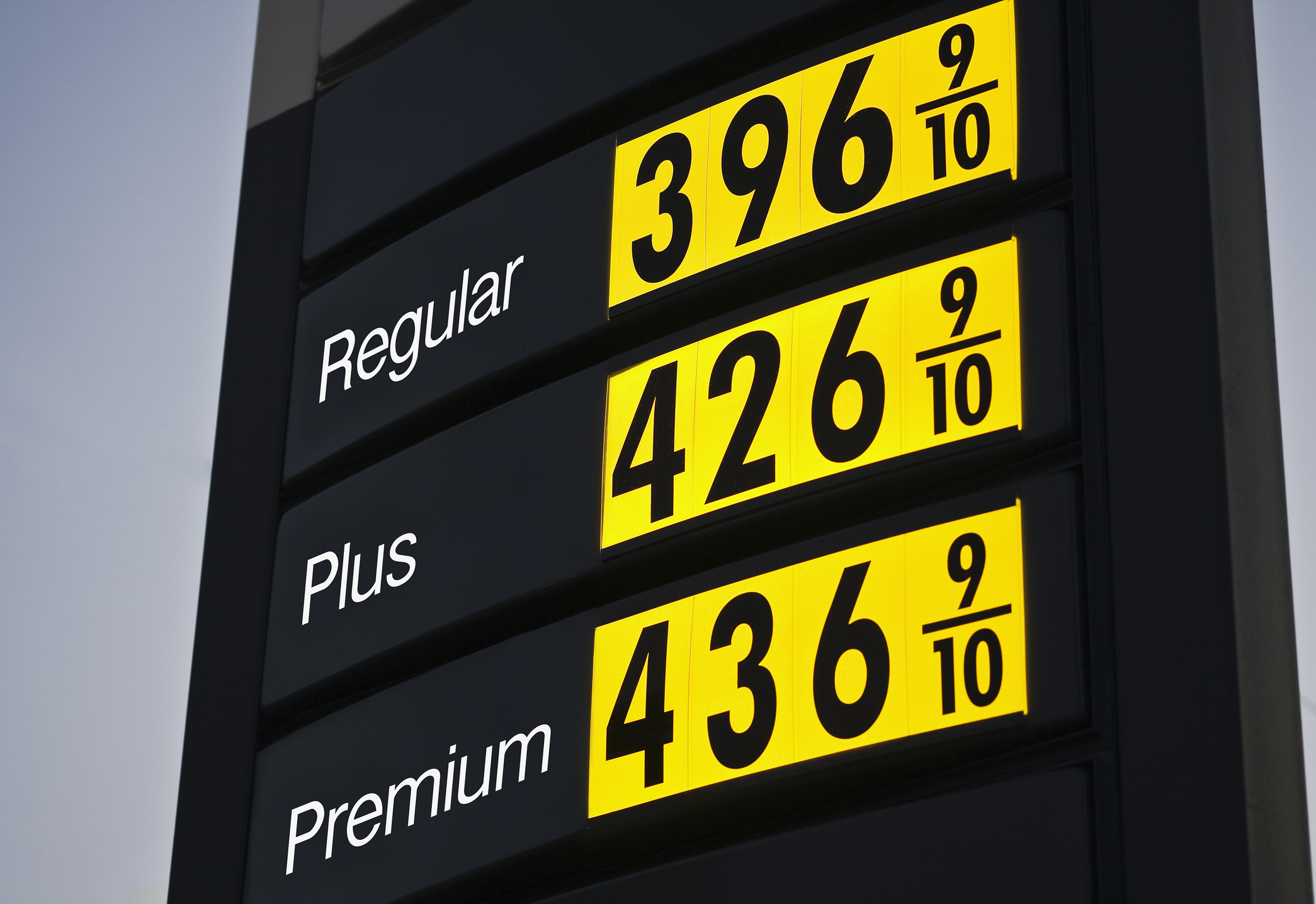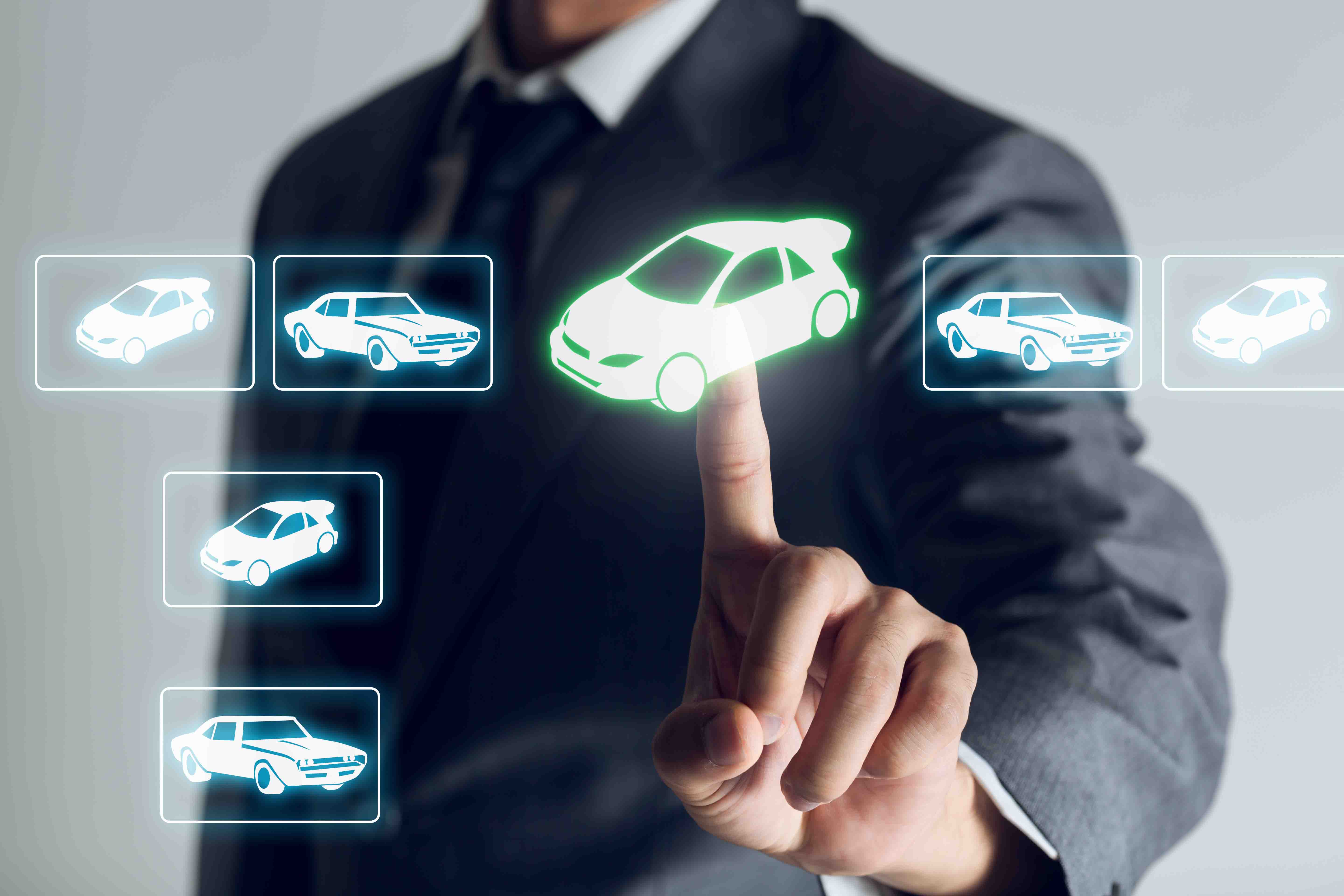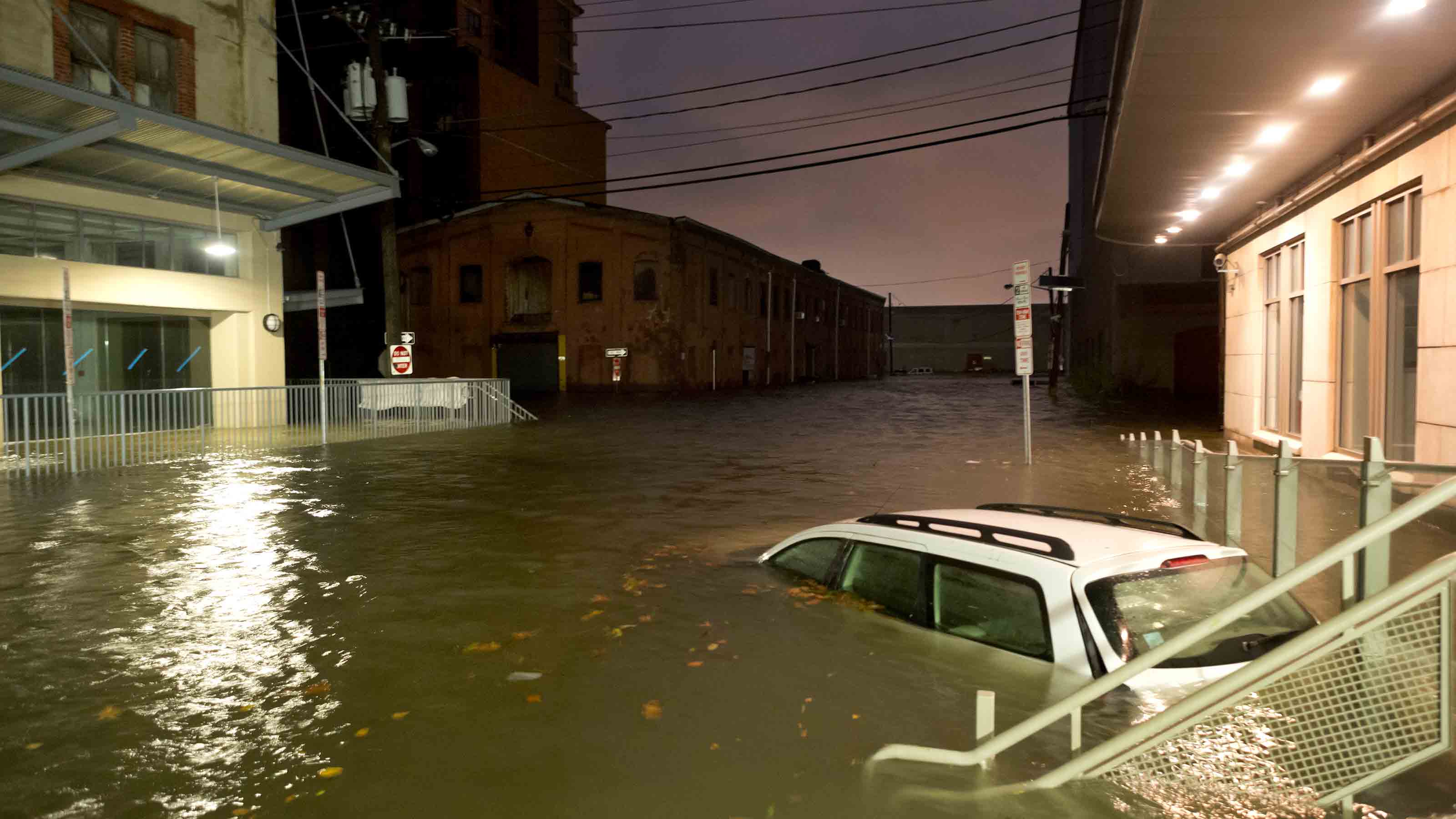A New Car That's Not Really New
Ford's latest crossover SUV hybrid, the Mercury Mariner Hybrid, has little to distinguish it from the Escape. So is the higher sticker price worth it?

Profit and prosper with the best of Kiplinger's advice on investing, taxes, retirement, personal finance and much more. Delivered daily. Enter your email in the box and click Sign Me Up.
You are now subscribed
Your newsletter sign-up was successful
Want to add more newsletters?

Delivered daily
Kiplinger Today
Profit and prosper with the best of Kiplinger's advice on investing, taxes, retirement, personal finance and much more delivered daily. Smart money moves start here.

Sent five days a week
Kiplinger A Step Ahead
Get practical help to make better financial decisions in your everyday life, from spending to savings on top deals.

Delivered daily
Kiplinger Closing Bell
Get today's biggest financial and investing headlines delivered to your inbox every day the U.S. stock market is open.

Sent twice a week
Kiplinger Adviser Intel
Financial pros across the country share best practices and fresh tactics to preserve and grow your wealth.

Delivered weekly
Kiplinger Tax Tips
Trim your federal and state tax bills with practical tax-planning and tax-cutting strategies.

Sent twice a week
Kiplinger Retirement Tips
Your twice-a-week guide to planning and enjoying a financially secure and richly rewarding retirement

Sent bimonthly.
Kiplinger Adviser Angle
Insights for advisers, wealth managers and other financial professionals.

Sent twice a week
Kiplinger Investing Weekly
Your twice-a-week roundup of promising stocks, funds, companies and industries you should consider, ones you should avoid, and why.

Sent weekly for six weeks
Kiplinger Invest for Retirement
Your step-by-step six-part series on how to invest for retirement, from devising a successful strategy to exactly which investments to choose.
When the Ford Escape Hybrid debuted a little more than a year ago, the company could confidently tout it as "the world's first hybrid SUV." It appealed to the environmentally conscious, techno-savvy crowd who liked the small crossover SUV not just for commuting but also for hauling stuff and weekend jaunts to the wilderness.
Now Ford Motor Co. has introduced another small crossover SUV hybrid, the Mercury Mariner Hybrid. Except it's not really new, considering it's a rebadged, slightly more upscale version of the Escape, distinguished only by a few exterior accents and a slightly nicer interior.
Mariner vs. Escape
Under the hood, the Mariner is identical to the Escape. Both operate with a 2.3-liter gasoline engine and electric motor that, together, deliver 155 horsepower. On paper, that's similar to the four-cylinder gas engine models, but acceleration in the Hybrid is nearly as quick as in the V6.
From just $107.88 $24.99 for Kiplinger Personal Finance
Become a smarter, better informed investor. Subscribe from just $107.88 $24.99, plus get up to 4 Special Issues

Sign up for Kiplinger’s Free Newsletters
Profit and prosper with the best of expert advice on investing, taxes, retirement, personal finance and more - straight to your e-mail.
Profit and prosper with the best of expert advice - straight to your e-mail.
The electric motor takes over when you're idling and driving at slow speeds, boosting city fuel economy to as much as 33 mpg for the all-wheel-drive model. Highway mileage is pegged at 29 mpg.
Unlike the Escape, which comes in two- or four-wheel drive, the Mariner is available only as a four-wheel drive model. Inside, chrome and woodgrain accents offer a refined ambiance.
The Mariner Hybrid has a base price of $29,840, including destination charge. The all-wheel-drive Escape Hybrid starts at $29,140. Standard equipment is nearly identical -- the Mariner has a couple of minor extras, like lighted vanity mirrors -- and option packages are pretty much the same.
So the decision comes down to whether the look of the Mariner is worth an extra $700. Ford plans to make only 2,000 Mariner Hybrids in 2006, so limited availability could also sway the decision. Mercury is taking orders at marinerhybrid.com. You pick options and color, and a personal sales consultant follows up and, if you choose, puts you in touch with a dealer.
If four-wheel drive isn't important to you, you can save money and increase fuel economy with the Ford Escape Hybrid two-wheel-drive model. It starts at $27,515 and is rated by the Environmental Protection Agency at 36 mpg highway and 31 city. You'll find more Escape Hybrids at dealers, too.
You could break even
You pay a premium for going green, and in the past you were unlikely to recoup the extra cost with savings at the gas pump. But with a new tax break for 2006, it's easier to justify higher price of a hybrid.
If you buy a hybrid this year, you may qualify for a dollar-for-dollar reduction of your taxes. The size of the credit depends on the model, its city fuel economy and how much that's improved over previous models. For the Mariner and Ford Escape 4WD hybrids, the credit is $1,950. For the Escape 2WD Hybrid, it's $2,600. (Note that the credit can't reduce the alternative minimum tax, if that applies to you.) For more information, see HybridCars.com.
For example, compare the Mariner Hybrid with the mid-level Mariner Luxury trim 4WD, which are comparably equipped. You pay about a $4,200 premium for the hybrid, but that's reduced to $2,250 after the tax credit. Annual fuel savings is about $450, assuming 15,000 miles a year with gas at $2.24 a gallon.
Bottom line: You could break even after five years. You'll do even better if gas prices rise. With the Escape 2WD Hybrid, the premium disappears after the tax credit and you can immediately enjoy the $500 annual gas savings.
One caveat: The nonhybrid models are likely to have incentives (for example, there is a $1,500 cash rebate in January), and dealers are likely to be receptive to haggling. That changes the break-even equation.
Still, don't ignore the fact that even if you don't come out ahead financially with the hybrid, you're producing fewer greenhouse gas emissions -- an advantage that's worth a lot, in my view.
Profit and prosper with the best of Kiplinger's advice on investing, taxes, retirement, personal finance and much more. Delivered daily. Enter your email in the box and click Sign Me Up.

Mark was the editor of Kiplinger's Personal Finance magazine from July 2017 to June 2023. Prior to becoming editor, he was the Money and Living sections editor and, before that, the automotive writer. He has also been editor of Kiplinger.com as well as the magazine's managing editor, assistant managing editor and chief copy editor. Mark has also served as president of the Washington Automotive Press Association. In 1990 he was nominated for a National Magazine Award. Mark earned a B.A. from University of Virginia and an M.A. in Writing from Johns Hopkins University. Mark lives in Washington, D.C., with his wife, and they spend as much time as possible in their Glen Arbor, Mich., vacation home.
-
 How Much It Costs to Host a Super Bowl Party in 2026
How Much It Costs to Host a Super Bowl Party in 2026Hosting a Super Bowl party in 2026 could cost you. Here's a breakdown of food, drink and entertainment costs — plus ways to save.
-
 3 Reasons to Use a 5-Year CD As You Approach Retirement
3 Reasons to Use a 5-Year CD As You Approach RetirementA five-year CD can help you reach other milestones as you approach retirement.
-
 Your Adult Kids Are Doing Fine. Is It Time To Spend Some of Their Inheritance?
Your Adult Kids Are Doing Fine. Is It Time To Spend Some of Their Inheritance?If your kids are successful, do they need an inheritance? Ask yourself these four questions before passing down another dollar.
-
 10 Things You Should Know About Buying a Car Today, Even if You've Bought Before
10 Things You Should Know About Buying a Car Today, Even if You've Bought BeforeIf buying a car is on your to-do list, and it's been a while since you went shopping for a new one, this guide will help avoid any nasty shocks in the showroom.
-
 Get the Best Car Deal in Retirement: Here's the Trick
Get the Best Car Deal in Retirement: Here's the TrickPlanning on shopping for a new car this Labor Day weekend? Here’s how to haggle for a better price, even though you're retired.
-
 7 Gas-Saving Tips That Actually Work
7 Gas-Saving Tips That Actually WorkThese are gas-saving tips that will actually work for you and your car this year.
-
 Want to Lease an EV? The Tax Credit 'Loophole' for That Is Going Away Soon
Want to Lease an EV? The Tax Credit 'Loophole' for That Is Going Away SoonTax Credits If you are deciding whether to lease or buy an electric vehicle, here is what you need to know about how the EV lease tax credit works now that it will be eliminated under Trump's new tax law.
-
 Car Buying in a Topsy-Turvy Market
Car Buying in a Topsy-Turvy MarketYou need a new car? Good luck with that! What should you do? We've got some answers.
-
 Watch Out for Flood-Damaged Cars from Hurricane Ian
Watch Out for Flood-Damaged Cars from Hurricane IanBuying & Leasing a Car In the wake of Hurricane Ian, more flood-damaged cars may hit the market. Car prices may rise further because of increased demand as well.
-
 Car Buyers: The 3-Day Grace Period Is Just a Myth!
Car Buyers: The 3-Day Grace Period Is Just a Myth!Buying & Leasing a Car Many car buyers think they have three days after making a purchase to return a car. Here’s where they’re going wrong, and what they should do instead to get a decent used car.
-
 PODCAST: Car-Buying in an Inflated Market with Jenni Newman
PODCAST: Car-Buying in an Inflated Market with Jenni NewmanBuying & Leasing a Car With cars both scarce and expensive these days, what to do if you want – or need – a new ride? Car-buying strategist Jenni Newman of Cars.com shares some tips. Also, more on the magical 9% savings bond.